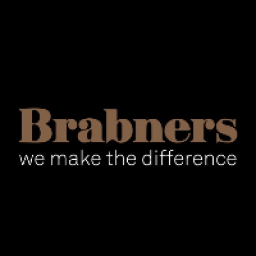The Gig Economy has received profound attention in the media for a number of years.
The high-profile debate over worker v self-employed status was triggered in part by a test case brought by Mr Aslam, an Uber driver, who claimed that he and many others should be paid the National Minimum Wage and should also receive paid leave, in accordance with the Working Time Regulations 1998.
In 2016, when the initial claim was brought, there were approximately 40,000 Uber drivers, of whom at least 30,000 were positioned in London, with over two million passengers registered to use its services at the time.
Uber vehemently denied throughout the proceedings that its drivers were classed as “workers” on the basis that the drivers were independent and self-employed. Uber argued that contracts were made between the driver and the passenger and that the drivers were at liberty to choose whether or not to accept an assignment, each time a journey was requested by a user.
However, the Tribunal found in favour of the Claimant’s and labelled Uber drivers as “workers” taking the Gig Economy by storm.
Both the Employment Appeal Tribunal and the Court of Appeal upheld the Tribunal’s decision. Earlier reports on the EAT decision can be found here: http://insights.brabners.com/post/102ek6h/ubers-appeal-against-the-worker-status-decision-has-failed-but-will-the-saga.
However, on 19 February 2021, the last word was handed down by the Supreme Court, following a two-day hearing, which took place in July 2020.
The Decision – The Supreme Court unanimously dismissed Uber’s appeal
The Supreme Court outlined that the primary purpose of key employment legislation is to protect vulnerable individuals with little or no say on their working conditions. Control has always been a key factor in determining whether an individual will be considered self-employed or a worker and employers are prohibiting from contracting out of Employment Protection.
In summary, the Supreme Court’s decision was attributed to five specific factors that confirmed the Tribunal’s decision was correct and that Uber drivers are indeed “workers”:
- Where a ride is booked, Uber will set the fare for that particular trip. The driver cannot charge more and therefore, it is Uber who dictates how much the driver will be paid for each trip.
- The contract terms on which the drivers perform their services are again imposed by Uber with very little or no say from the drivers.
- Once logged on to the Uber app, the driver’s choice to accept or decline work is constrained by Uber. This is done by way of monitoring the driver’s rate of acceptance and cancellation and imposing a penalty upon the driver if too many trips are declined or cancelled. This monitoring system serves to prevent the driver from working by blocking them out of the app as a penalty for a period of time.
- Uber exercises significant control over way that the drivers deliver their services. After each trip the passenger is asked to rate the driver for their trip. Any driver who doesn’t get the expected average rating will receive a number of warnings and eventually, their services are terminated.
- Uber restricts communication between the driver and the passenger and takes active steps to stop drivers making relationships with passenger directly – again, maintaining high levels of control.
Taking the above five factors together, the Supreme Court found that the transportation service is very tightly defined and controlled by Uber and as such, the driver would be deemed a worker.
In practice, the only way that the driver can increase their earning is by working longer hours and meeting performance targets set by Uber, as opposed to being entrepreneurs in their own right.
In respect of working time, the Supreme Court also confirmed that the drivers working time was not just during accepted assignments, but for any time spent logged into the app where they were ready and willing to work.
What does this mean for employers?
The key point for establishing the true relationship between a Company and an individual is the level of control that the Company has over the Individuals ability to earn a living and in doing so, how their services are delivered to the end user.
This is not new to the employment world and is a long-established principle that many employers have tried to circle around, by setting out loose intentions to control the relationship via service contracts/consultancy agreements, however, in practice they maintain tightly defined control over the individuals.
Where significant control is retained or performed in practice, it is highly likely that the individual will acquire worker status and as such, have a right to receive the minimum wage, as well as 5.6 weeks’ paid annual leave each year.
This is in addition to other rights that workers also enjoy but does not extend as far as the rights that an “employee” will enjoy i.e. the right to redundancy pay and not to be unfairly dismissed.
Clarifying the status of an individual’s engagement to carry out work is more important than ever, due to the increasing number of people engaged in the gig economy or who work outside of a traditional employment relationship who may not always get the benefits that they are entitled to as a result of this Judgment, but also with the changes to IR35 due to take effect from April 2021.
For more information on the topic, please contact Trishna Modessa-Parekh or another member of our Employment team.
 NORI HR & Employment Law
NORI HR & Employment Law








